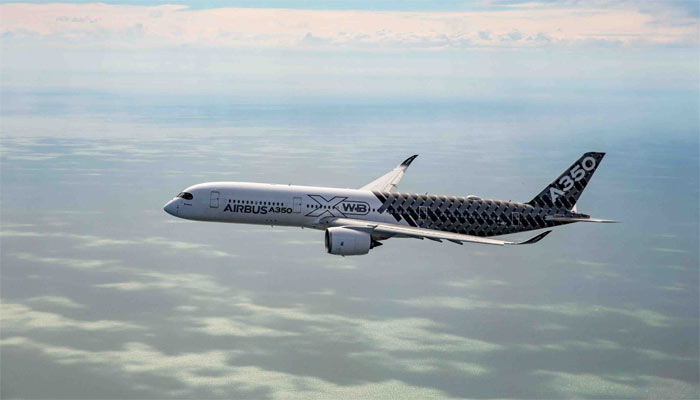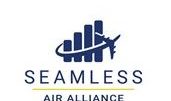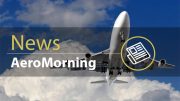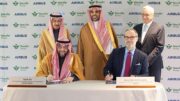· Airspace Connected Experience: Pioneering Internet of Things in the aircraft cabin
· Paving the way for a new personalised passenger experience and an open ecosystem approach for airlines
APEX Expo, Los Angeles, 11th September 2019 – Airbus has commenced in-flight trials of IoT* connected cabin technologies on board an A350-900 Flight Lab aircraft – to be shortly revealed to customers. In doing so, Airbus becomes the first aircraft manufacturer to undertake such flight-testing of actual connected cabin innovations. The platform, known as the Airspace Connected Experience, was unveiled at the APEX Expo last year. It will usher in a new personalised experience for passengers and provide opportunities for improving airlines’ ancillary revenues and operational efficiencies.
The Flight Lab is one of the original A350-900 certification flight-test aircraft – MSN002 – and is fitted with an Airspace cabin which now serves as the ideal platform to evaluate the new connected cabin technologies in flight. To this end, and in conjunction with our best-in-class cabin partners, an initial set of working elements have been installed. These include prototypes of the connected iSeat (Recaro), the Connected Galley (gategroup), a remote wireless cabin management control system, a large OLED display and importantly, the first step of Airbus’ new “IoT backbone” which includes an open software platform. These innovations are all now being tested in flight – together with others to be revealed in due course to customers.
The connected cabin ecosystem will enable significant value-adding services for passengers, airlines and crews. Possible examples include:
- Passengers will receive a more personalised travel experience specifically targeted to the individual needs and preferences, based on the available data. In particular this covers pre- and remote ordering of preferred meals, booking of private bin space, setting of individual seat positions as well as a tailor-made inflight IFE offer.
- Airlines will be able to generate additional ancillary revenues through personalised retail and advertisement as well as new services, all enabled by the IoT approach. Furthermore, airlines will be able to improve their operational efficiency applying predictive maintenance, avoiding waste and making crew services more efficient. Other opportunities can easily be created and applied via apps.
- Crews will find a better working environment and more efficient tools, digitally enabled by real-time data from the IoT platform throughout the cabin. A mobile smart device will allow crews to monitor and operate all components.
Customer-centric approach
The in-flight tests are part of our customer-centric approach, which began with workshops to create and prioritise innovative concepts, followed by an extensive phase of on-ground testing and customer evaluation of the connected elements. The subsequent testing of these innovations in an Airbus Flight Lab environment is key to bringing an integrated Connected Experience to fruition – being able to validate and refine them in a real airborne cabin. In particular, the tests allow the various elements to be operated and monitored during a normal flight cycle, especially with regard to the end-to-end data flow robustness within the systems and between them. The next steps will continue testing of the current setup, then close the feedback loop with airlines using Airbus’ Customer Experience Teams (CET) forum, by around year-end.
*IoT = “Internet of Things”
About Airbus
Airbus is a global leader in aeronautics, space and related services. In 2018 it generated revenues of € 64 billion and employed a workforce of around 134,000. Airbus offers the most comprehensive range of passenger airliners. Airbus is also a European leader providing tanker, combat, transport and mission aircraft, as well as one of the world’s leading space companies. In helicopters, Airbus provides the most efficient civil and military rotorcraft solutions worldwide.









Be the first to comment on "Airbus commences in-flight trials of connected cabin technologies"